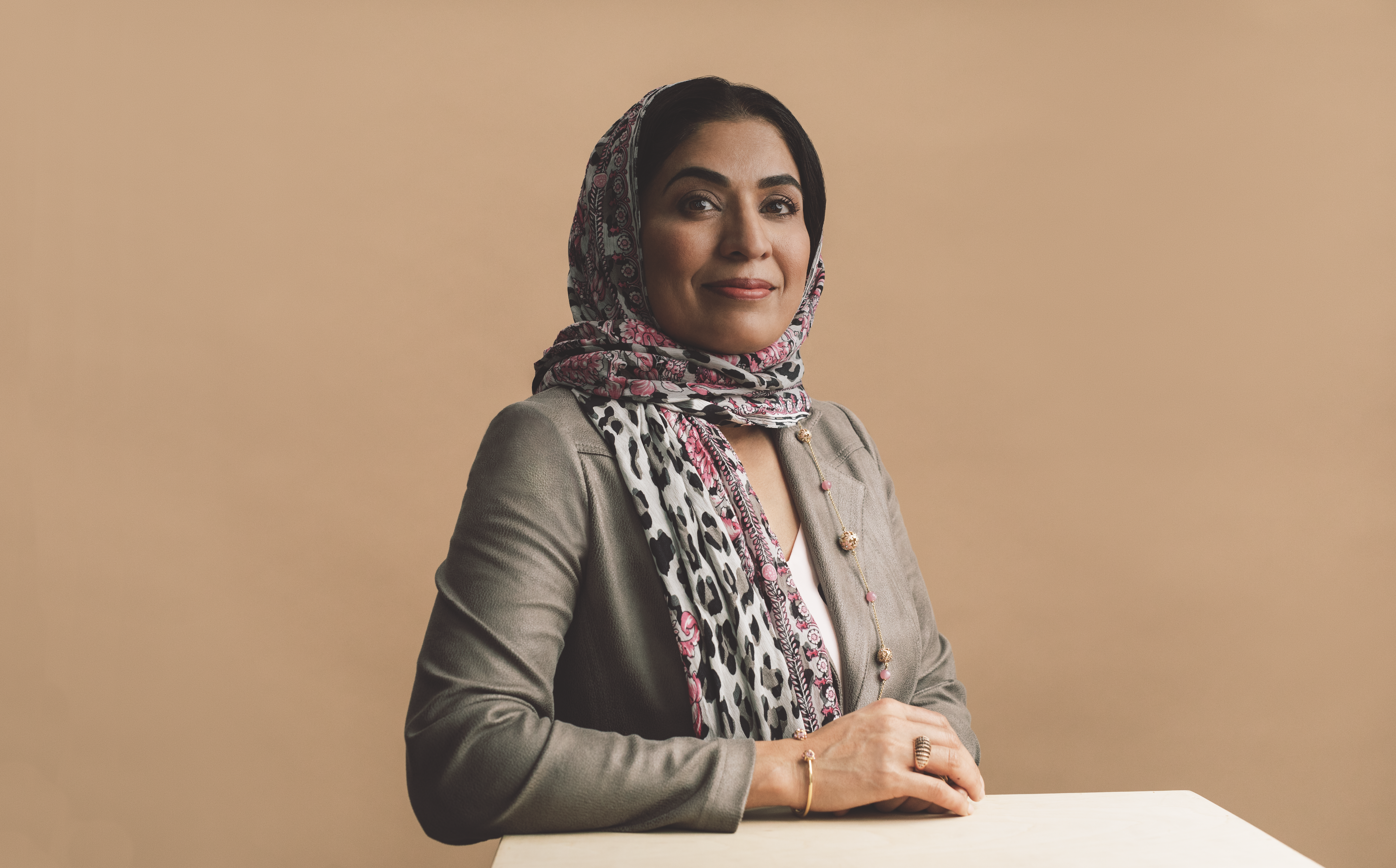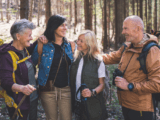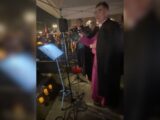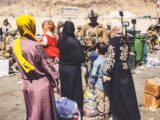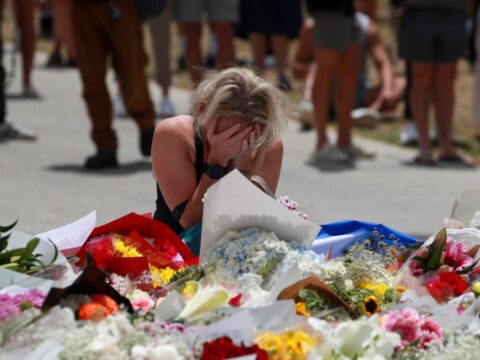Dr. Fozia Alvi is a family physician and mother of three based in Calgary. Born and raised in Pakistan, where she trained as a doctor, Alvi has volunteered her medical services around the world, and her philanthropy helped to found a hospital for mothers and children in the city of Talagang in Punjab, Pakistan. Alvi spoke with Roberta Staley about health care on the front lines of humanitarian crises.
Roberta Staley: The maternal and infant mortality rates in Punjab are alarmingly high. Why is that?
You may unsubscribe from any of our newsletters at any time.
Fozia Alvi: We came to realize that a lot of deliveries are happening at home with midwives. But local midwives in Talagang have no training to deal with [complications like] a breech presentation or if a mother starts hemorrhaging. So in those cases, they have to take mothers to Rawalpindi — about a three-hour drive. By the time they reach the city, they can’t survive. And if they are taken to a local private hospital, they aren’t admitted if they don’t have the money. There are no government rules and regulations for midwives. Children are dying every day. My younger sister, Dr. Sobia Malik, tells me horrible stories about hemorrhaging caused by midwives administering oxytocin, thus overstimulating the uterus, causing death. Often, she sees these patients when they’re transferred from the small towns to her hospital close to Rawalpindi. She can do nothing but give them blood and hope they survive.
RS: Your hospital in Talagang has 60 beds, and health care is free. What has the impact been?
FA: It’s definitely saving lives. Before, if infants were born premature, there was no nursery and no intensive care unit for them. If a child needed hospital care for pneumonia or neonatal complications, they were left to die at home. So we have opened a neonatal intensive care unit. We have four or five doctors now, but I’d like to build a trauma centre. The goal is to add other specialties. I am thinking oncology, internal medicine specialist, ears, nose and throat, and ophthalmology. In the first 11 months of 2018, more than 20,000 patients were treated and 432 babies born at the hospital.
RS: You provided medical care to Rohingya refugees as they fled Myanmar in 2017, and went last year to their refugee camps in Bangladesh.
FA: I went because I felt I had to get the first-hand stories. One girl I met, Sumida, was 18 when the Myanmar army came. The army took Sumida’s husband [and infant son], and the soldiers struck Sumida and threw her into the wall. Someone found her baby two days later in a ditch, near the dead body of his father. Sumida had been taken to a nearby barn where all the women and girls were gang-raped. But she made it to Bangladesh with her brother and her baby. In Bangladesh, she found out she was pregnant, but didn’t know if the father was her husband or one of the soldiers who raped her. I asked the women who had babies as a result of rape how they felt, and they started crying. One woman told me that when her baby was born she didn’t want to see her. But she said, “It’s my baby, if I’m not going to take care of her, who will?” The condition of these camps is really bad. There are no lights in the nighttime. Soldiers go inside the tents and rape these women.
“It’s a constant battle trying to deal with my PTSD, but I’m trying to channel my anger and emotions to help the Rohingya. Because if I’m not healthy mentally, then I’m not of any help to them.”
RS: You developed post-traumatic stress disorder as a result of your experiences with the Rohingya. How are you doing now?
FA: I have some training in psychiatry, so I know the symptoms. I had trouble sleeping, and it was hard for me to re-enter my life in Calgary. So much had changed in my head and heart. It’s a constant battle trying to deal with my PTSD, but I’m trying to channel my anger and emotions to help the Rohingya. Because if I’m not healthy mentally, then I’m not of any help to them.
RS: Last year you travelled to Şanlıurfa (also known as Urfa), a city on the Turkey-Syria border, to visit a temporary orphanage for young female Syrians. You decided to build a new permanent orphanage.
FA: It is called the Oasis of Urfa. A person donated the land in a nice area of Şanlıurfa’s highrises, and I thought that if no one will help me build it, I will do it myself. The cost is about $650,000, and it will serve 300 orphan girls and provide apartments for single mothers. I also saw the Syrian refugee camps on the Turkish border, and their conditions are very different than the Rohingya refugees. They were well-fed, their health was good, the children were going to school, and they had fridges in their tents and electricity. I am so happy with how the Turkish government is treating these refugees. In comparison, the Rohingya refugees are skin and bones and they live in constant fear of repatriation to Myanmar.
RS: What do you hope your children learn from your work?
FA: I have two sons: Saad, 21, Waleed, 16, and a daughter, Iman, who is 13. I hope that they learn about the pain and suffering of oppressed people and aren’t ignorant of the crises that are going on in other parts of the world.
RS: What does 2019 hold for you?
FA: Besides supporting my hospital, I will do whatever I can to go back to the Rohingya refugee camps. Rohingya are human beings like us. They need and deserve to have a home. They need to get their land and state back. I also want to go to Yemen to raise more awareness. Canada should stand up more to the Saudis for their war in Yemen, which is facing the world’s biggest famine in a century. One million people are suffering from cholera, and lots are dying of hunger.
RS: Does your faith motivate you?
FA: I believe that you are a human being first and religion comes after. What drives me is I was raised in the poor country of Pakistan and thought, “I have to give back.” With the Rohingya, I felt the pain of those people; their suffering keeps on driving me. Healing is a small thing, but I try to do whatever I can. Sometimes small efforts can change hundreds of thousands of lives.
This interview has been edited and condensed for clarity.
It first appeared in the May 2019 issue of Broadview with the title “Dr. Fozia Alvi.”
For more of Broadview’s award-winning content, subscribe to the magazine today.

